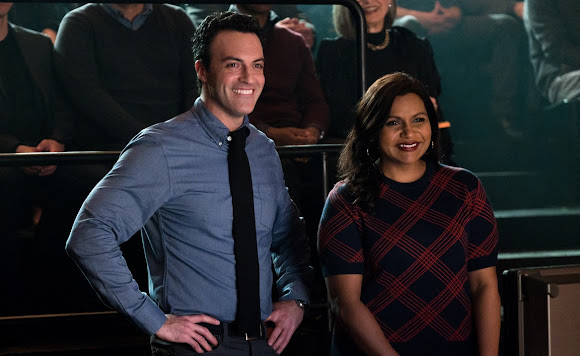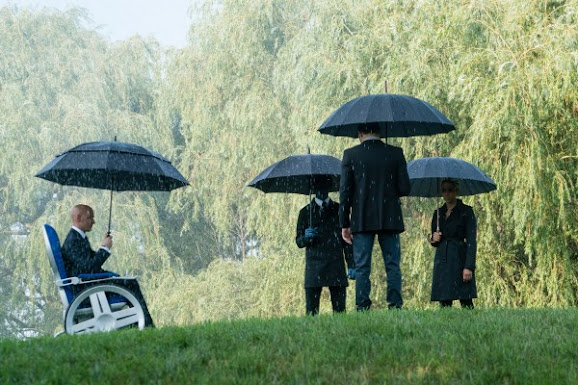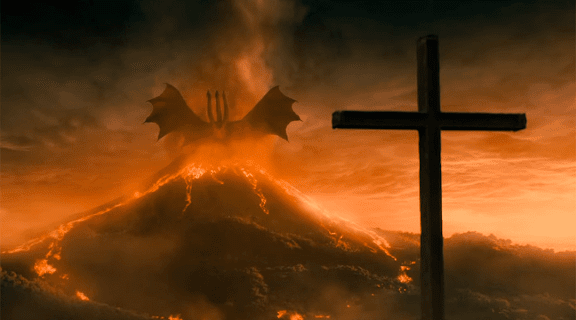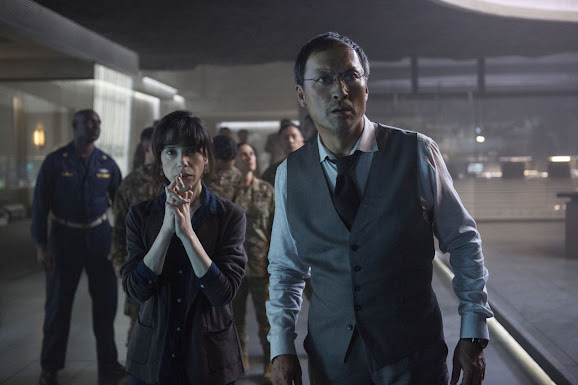Yesterday (2019), and anticipate reviewing those films this weekend in addition to Spider-Man: Far From Home and Midsommar early next week.
'Toy Story 4' Review
Nominated For: Best Animated Feature and Best Original Song "I Can't Let You Throw Yourself Away" (written by Randy Newman).
Won: Best Animated Feature.
Synopsis: Woody and the rest of the gang embark on a road trip with Bonnie and a new toy named Forky. The adventurous journey turns into an unexpected reunion as Woody's detour leads him to his long lost friend Bo Peep. As Woody and Bo realize they're worlds apart when it comes to life as a toy, they soon find that's the least of their worries.
Runtime: 100 minutes
MPAA Rating: G
Who should see it? Fans of Pixar and the Toy Story franchise.
Toy Story 4 exists as the fourth entry in a nearly twenty-five-year-old Pixar franchise and director Josh Cooley's first feature film. Throughout its development, various screenwriters were charged with reviving the series, but the screenplay ultimately was penned by Andrew Stanton and Stephany Folsom with story credits shared between John Lasseter, Valerie LaPointe, Rashida Jones, Will McCormack, and Martin Hynes as well as Cooley, Stanton, and Folsom. It would be an understatement to say I was skeptical about a continuation of Pixar's touchstone franchise.
Though unwise to underestimate Pixar, Toy Story 4 seemed to be an unnecessary series extension, and the marketing material didn't inspire confidence. Pixar's recent sequel craze has resulted in a series of entertaining, but fairly forgettable franchise additions and I was worried Toy Story 4 may fall victim to that, tarnishing the legacy of what I consider a perfect trilogy. The ending of Toy Story 3 carried a bitter-sweet sense of finality, and I doubted the premiere animation studio could justify another installment. Thankfully, I was proven wrong. Toy Story 4 is an ideal epilogue to one of the greatest cinematic trilogies which maintains the series' sense of hilarity, heart, and adventure.
Every Toy Story installment grapples with what it means to be a toy, exploring that existential thematic ground through a different perspective, time and time again. Though Toy Story 3 seemingly resolved the toy's connection with Andy, Woody requires further closure. Woody' fulfilled his life purpose, so what now? That's the question at the core of Toy Story 4, which can be interpreted as meta-commentary about the franchise itself. This story ended with the third one, right? Why continue? Are creatives and audiences willing to say goodbye to these iconic animated characters? These are questions many will ask concerning this fourth chapter, and they're deeply embedded in the narrative.
As audiences expect from a Pixar production, Toy Story 4 features phenomenal photo-realistic animation with exquisite attention to detail. The textured porcelain, plastic, vinyl, felt, and fabric toy components are particularly well-rendered while character motion is authentically articulated. Beneath it all, Randy Newman's music is the beating heart and soul behind the toy's latest adventure. "You've Got a Friend in Me" is incorporated in a nostalgic montage while "I Can't Let You Throw Yourself Away" and "The Ballad of the Lonesome Cowboy" are charming, old-fashioned earworms. Regarding the score, Newman peppers in familiar franchise motifs along with some excellent new arrangements.
Carrying over from the previous films, Tom Hanks, Tim Allen, Annie Potts, Joan Cusack, Wallace Shawn, John Ratzenberger, Blake Clark, Don Rickles, Estelle Harris, Jeff Pidgeon, Bonnie Hunt, Kristen Schaal, and Jeff Garlin reprise their respective roles of Woody, Buzz, Bo Peep, and the rest of the gang. Meanwhile, Tony Hale, Keanu Reeves, Keegan-Michael Key, and Jordan Peele are charming, scene-stealing additions to the cast as Forky, Duke Kaboom, Ducky, and Bunny while Christina Hendricks' Gabby Gabby turned out to be a more layered antagonist than expected. The entire voice cast offers ideal interpretations of these characters, but Hanks turns in one of his best vocal performances yet as Woody finds closure amidst whacky shenanigans in an RV, carnival, and antique shop.
One quibble I have is that the original grouping of toys were mostly sidelined in favor of the new characters. Toy Story 4 is Woody's story first and foremost, so this is a logical storytelling choice, but I wish Buzz, Jessie, and the gang were more involved. Otherwise, there were a few gags which quickly wore thin and were a little too repetitive for my liking.
Against all the odds, Toy Story 4 managed to be just as charming, hilarious, and heartfelt as its predecessors. Whether Toy Story 4 concludes the Toy Story series or not, I'm willing to follow this franchise to infinity and beyond.

















































